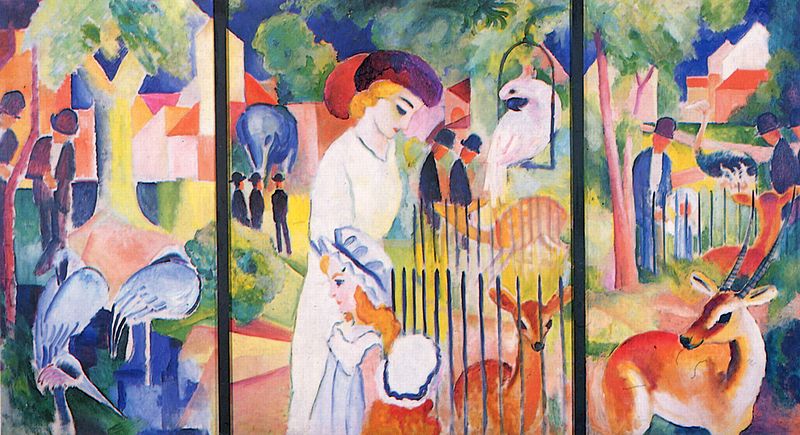
This short composition was discovered in the Stanford University Library, tipped into the inside cover of a bound first volume of Charlotte Perkins Gilman’s 1909 magazine The Forerunner:
Spring is in the air. All creatures feel it. The fish are shooting up the rivers, the birds hard working and happy; every animal feels the lift and stir and new life. Even those which are in prison. …
What excuse has the Prison for Animals? What have they done to merit this life sentence?
Spring is in the air. The trees are misty with soft color, blurred with swelling buds, all aslant with curly tassels of young blossoms. The grass is pushing up in joyous vigor, green as it is never green again; soft, sweet, the delicious new first growth; beginning of a long summer’s feasting.
Here are the deer prisons. They have a high iron fence around them, another railing outside that. They have a wooden house for shelter. They have underfoot, cinders — gravel and cinders. …
To keep in a prison yard an animal built for speed, accustomed to wide ranging, to long swift flight, is cruelty. …
And for what? For whose benefit? Does it give pleasure? Those who find pleasure in gazing at helpless pain had better go unpleased. …
These beasts in prison, these who bear no burdens, provide neither food nor drink, wool nor hide — what excuse have we for tormenting them?
Here is a bald eagle. A bird of freedom. … The eagle sits huddled, dull as a brooding vulture. …
Here is a hawk, fierce-eyed. He beats his wings to tatters … against the bars.
Here is an elephant, huge, patient, with small, smouldering eyes that see more than we think. Manacled, this beast, chained at both ends, fore foot and hind foot, to stout posts. The elephant is a water lover. His dry hide itches for water. He wants to wade into it, to draw it up and pour it all over himself. …
All wild creatures have a keen, delicate sense of smell … We imprison them in fetid odors. They needs must breathe, night and day, the repulsive smell of their enemies, odors of danger and distrust. …
(Via Robert Alexander, ed., Spring Phantoms, 2018.)
